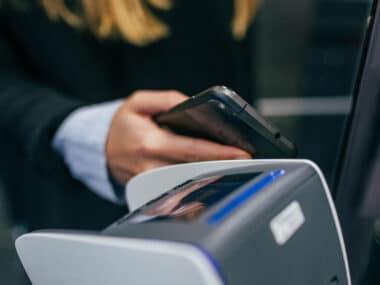Life has a way of throwing curveballs unexpectedly. Sometimes those curveballs are pleasant, some are unwelcomed, but some are catastrophic. A financial curveball has the ability to knock the rest of life off kilter and the repercussions can be hard to come back from. When the stakes are high, you may have to consider risky options. By weighing each situation with the possible debt, finding safer alternatives for scraping money together, and preparing for the worst before it happens, you can minimize the repercussions of a financial emergency. It can be impossible to stop an unexpected emergency in advance, but certain remedies may be less harmful than the alternative.
Table of Contents
Know your Loan Options
Maybe your car was totaled and the other driver didn’t have insurance; perhaps you were unexpectedly laid off, or your family was impacted by a natural disaster. Many of these situations require an immediate remedy in order to stay afloat. Some of the loan options available in a situation that requires a large sum of money quickly are:
- Title loans
- Short-term loans
- Personal loans
- Person-to-person loans
There are positives and negatives to each of these options, but they are the types of loans available in a pinch. Title loans offer you a loan based on a percentage of the value of your vehicle, where you give the lender the title as collateral for the loan. Short-term loans, or ‘payday loans,’ offer a certain amount of money based on your income that is to be paid back, with interest, in about 14 days. These loans have high interest rates, extra costs, and are difficult to pay off. They usually don’t check your credit or report to credit bureaus, but the dangers in missing just one payment are huge. It’s easy to get stuck in a debt cycle, or have your car repossessed after just one missed or late payment.
Getting a personal loan through a bank or borrowing money from a family member are much safer alternatives because interest rates are much lower. However, calculating repayment is still important, so that your don’t ruin a relationship or your credit in the process.
Your Emergency Expenses vs Long-Term Debt
It’s important to stop and evaluate your situation before running to the nearest loan office. Big emergencies can call for desperate measures, but it’s not always the best course of action to find money wherever you can, no matter the cost. If you begin to accrue more debt in the process of fixing your emergency, you’ll leave yourself in a state of financial emergency for months — or even years. Building credit is a long and difficult process, and repairing bad credit can have an effect on your finances for the rest of your life. The other options for finding money in a bad financial situation include:
- Taking out another mortgage on your home
- Signing up for a credit card
- Withdrawing money from your retirement account
Before deciding on any of these options, it’s best to weigh their debt potential with the severity of your emergency. Taking out a second mortgage is basically borrowing against the value of your home. The positives being that you can borrow a large sum of money at an interest rate lower than many other types of debt. The primary disadvantage is that you are risking foreclosure. Taking out a credit card can lead to problems if they have high interest rates, and can lead to more credit issues if you aren’t using it responsibly.
However, if used responsibly, credit cards can be used as a multi-functional resource to both handle emergency debt and build up good credit. Withdrawing money from a retirement account carries many risks despite their low interest rates. If you leave your job before the loan is repaid, you may have to pay it back in full within 60 days, or face costly penalties. Anything you take will be taxed, and you may face even more penalties for taking money from this account if you’re younger than 59.
Safer Options for Scraping Money Together
Before taking out hazardous loans or going to other extremes in a financial emergency, you should first look into safer alternatives.
- Start a crowdfunding account
- Seek available assistance
- Sell personal belongings
- Get another job
- Make lifestyle adjustments
Crowdfunding accounts like GoFundMe have been used for a slew of different reasons, and you may find a lot of people willing to help your cause by utilizing this method. It’s certainly safer than a short-term loan, but just be aware that GoFundMe and some sites like it do take a portion of the money you raise. There are also assistance programs to help those in peril with medial funds, housing, and unemployment. Selling personal belongings is another great way to make money, as is getting another job or starting a small business on the side. Driving for Lyft, selling crafts, or doing odd jobs may take more time, but it’s a safer method than many fast-cash options. Making lifestyle changes like shutting off your cable, stretching your dollar, taking the bus, or cancelling streaming services is putting money back into your pocket.
Preparation Before Catastrophe
Sometimes you need a ton of money and you need it now. Maybe your pet needs life saving surgery, or there’s a sudden death in the family and you need to fund a funeral — those financial emergencies make it difficult to afford just by selling a few things or waiting a month to get a loan approved. Those emergencies make fast-pay loans really tempting and, in some cases, the only option. In order to save yourself from being lost in your financial hardship, it’s best to start preparing before it happens. Start by making a personal budget and factoring in an emergency fund for situations like these. It’s a good idea to save the amount equal to 2-3 month’s living expenses. However, even a $500 nest egg can save you from dangerous options.
In an emergency, it’s relatively common to forget the long-term and focus on what can fix the problem right now. In reality, it’s best to stop and think. Repayment can be the last thing on anyone’s mind, but an accumulation of unpaid debt is extremely dangerous for your long-term credit health and financial stability. By understanding your loan options, weighing your emergency with the possibility of more debt, trying safer money making solutions, and saving a small emergency fund, you can keep the financial curveballs from making as big of an impact on your life.
For tips and guides to improving your credit, visit the Fiscal Tiger credit score resource and learning center.
Image source: https://pixabay.com/





